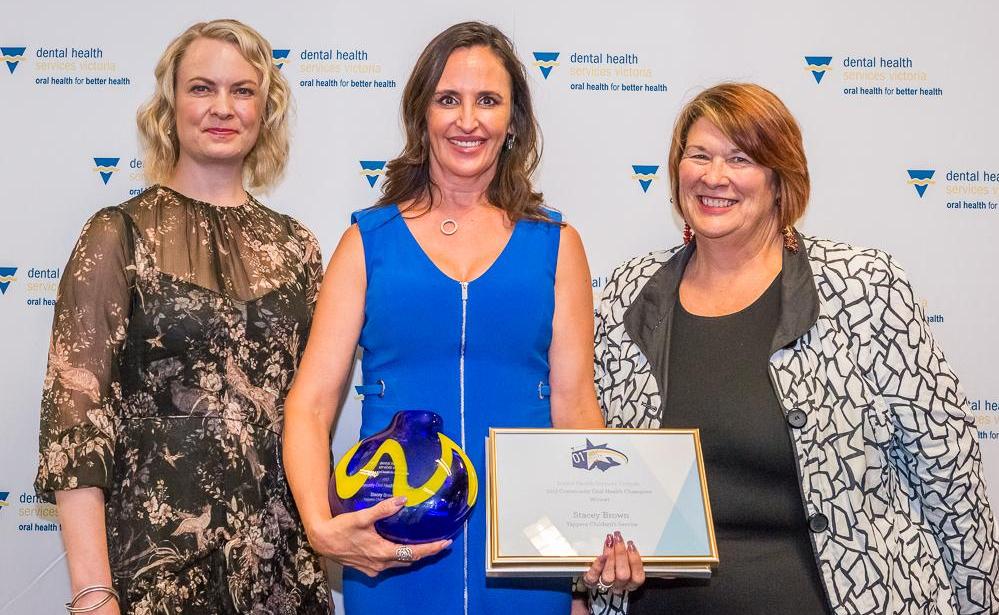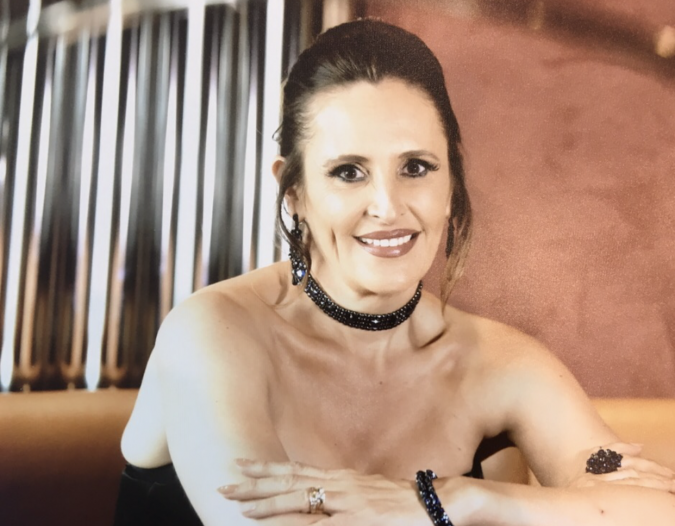Stacey Brown (Yorta Yorta and Dja Dja Wurrung)
Who are you and where do you come from?
I am a proud descendant of the Yorta Yorta and Dja Dja Wurrung clans or also known as the Jarra people in Victoria. The Yorta Yorta clan occupy a unique stretch of forest-wetlands that are located in what is now known as the central Murray - Goulburn region. The lifestyle and culture was based on hunting, fishing and collecting food from the variety of food sources provided by the ancestral lands. The totem of the Yorta Yorta People is the long neck turtle.
The land of the Dja Dja Wurrung takes in the catchment area for the Loddon, Campaspe and Avoca Rivers in the Riverine region of central/western Victoria. Bendigo is the largest city in Dja Dja Wurrung country. Other cities and towns are Wedderburn, Castlemaine, St Arnaud, Maryborough, Boort, Heathcote and Maldon. We are part of the Kulin Alliance of tribes. There are 16 families that are part of this clan group.
My father is Clive Atkinson, a proud Yorta Yorta, Dja Dja Wurrung Elder. A talented graphic designer, artist and musician, my father is now semi-retired with his wife in Echuca but still teaches art classes. I am equally as proud of my strong French-Canadian Heritage from my mother and have family In Vancouver, Canada. We make the time to visit frequently.
I was born in Box Hill Hospital and I am the oldest of three children. I have a younger sister who resides in Canada and a younger brother who lives in Perth. I am married to a proud Gunditjmara man – Bradley Brown and I am the proud mother of three children, second mother to an additional two children and the proud and supportive Nan of 7 grandchildren. We have raised our children and grandchildren as proud Aboriginal Community members.
I have now been working within the Early Childhood Education sector for over 23 years. I have been the CEO of Yappera Children’s Service since January 2004 and have now seen two generations of children through Yappera.
Tell us what growing up was like for you?
I loved my childhood. So different to the way kids are today. I remember visiting my cousins in Mooroopna and Echuca, camping on the Murray River every Easter with the family, primary school, riding bikes and playing dolls with my friends and all the other wonderful childhood memories I have. Most of my childhood was spent outdoors with the neighbourhood kids, many of who I still see today. These are where I formed lifelong friendships.
I spent most of my childhood in Australia, moving back to Canada when my parents separated at the age of 12. My mother returned to her family with both my sister and I. I completed all of my secondary education in Canada.
It was difficult as a child having one parent in Canada and one parent and a large family in Australia. I missed the cousins, friends and families I was raised with, but I was resilient. At times, I felt very disconnected from my family which was challenging when you are so young. I kept in touch with friends and cousins by writing letters and visiting when we could afford the long trip over.
My memories of Canada are equally as fond as that of my childhood in Australia, but I was always drawn back to Australia as my home where my early years and primary years were and returned at the age of 18 to study and live with my dad.
Who are the women that inspire you?
There are so many women that are in my life that have inspired me. My mother who I have strong beliefs and values from, both my Grandmothers who played a significant role in my life, my Aunties who I have great admiration and respect for.
I have a great respect for all the female leaders in our Community, especially those who lead our Aboriginal Organisations and have guided and supported me to become a better leader.
I respect each and every female staff member in Yappera and the roles they play. Their dedication, commitment and love for our children enrolled is amazing. I am truly honoured to watch the younger Aboriginal women in our service who are taking on new challenges in leadership.
I have so much admiration, pride and respect for my daughters and daughters in law who are now strong, successful women who now also work in Community. I see myself many years ago in my daughters, their beliefs and values and the women they are today. Their confidence shows in everything they do.
I am so proud of the theme this year ‘Because of Her, We Can!’ Celebrating the essential role that women have played and continue to play – as active and significant role models.


What does self-determination mean to you?
Self-determination to me means the right to make collective choices on matters that will directly relate to us as individuals and as a Community. Self-determination is the right to freely determine political status and freely persue economic, social and cultural development – to influence policies and programs/services that directly affect us.
Self-determination is a fundamental human right. It’s transferring power of decision making from Government back to Aboriginal people which in turn, empowers Communities. Self-determination underpins cultural, family and Community wellbeing.
What does NAIDOC Week mean to you?
NAIDOC week is a time for Community to come to come together and celebrate our survival. We, as Communities have the opportunity to celebrate our history, our culture and our achievements as Aboriginal and/or Torres Strait Islander peoples.
NAIDOC week is a special time for our Communities where we come together to acknowledge the achievements and the hard work of those before us – our ancestors, to lobby and advocate on behalf of our people to build the organisations that exist today.
I look forward to NAIDOC week each year and am proud that we, as individuals and as a family have made some contributions in our working and Community member roles to ensure the programs and services in the organisations that we work for and run continue to be successful.
I am extremely proud to also see the number of non-Aboriginal people who acknowledge and participate in NAIDOC week and march along beside us at the Annual NAIDOC march.
NAIDOC week sends a very strong message about the importance of culture, history, language revival and ensuring families are strong and proud.
Can you please tell us about the work you do in Community?
I have been working in Community since the age of 19. I started as a trainee bookkeeper at the Aboriginal Advancement League and worked there for 2 years before having my first baby. Following maternity leave, I started at Yappera as the Finance Officer and then moved into the role of CEO after studying leadership and management, governance, the Diploma of Children’s Services and then going on to study and complete the Bachelor of Early Childhood Education – Honours.
I have also had a long involvement with the Melbourne Stars Basketball Club when my children were younger.
I was extremely humbled to be part of Department of Health and Human Services Taskforce 1000 and am part of the Taskforce 1000 Governance Group and the Aboriginal Children and Families Working Group. I am also part of the Aboriginal Best Start Reference Group in the North.
I am also part of the Victorian Aboriginal Education Association Inc. (VAEAI) Steering group guiding the content of Professional Development Sessions that will be delivered across Victoria and the Northern Metro Koorie Education Roundtable that is facilitated by VAEAI.
I am a passionate advocate for the early childhood sector and emphasise the importance of early childhood education in the years prior to school. I strongly believe that the early years are fundamentally important as they lay the foundations for future health, growth and development. We have the opportunity to make a difference in the early years and make a contribution in the most crucial years towards the foundations of a positive lifelong learning journey.
Ensuring that our children start school as strong, confident, proud and resilient learners is how we, as educators know that we have done our job well. Collaboration with our families and broader Community ensures that every child develops a love of learning and that we ensure families are actively involved in their child's learning and that they feel confident to be involved in their child's learning journey through the early years as well as primary and secondary years.
My husband Bradley and I have always worked in Community in various roles and continually strive to ensure Services continually improve and are sustained for the next generation
What future would you hope for young Aboriginal women?
Aboriginal Women today, our younger Aboriginal Women of the next generation are playing a defining role in Community. We are a voice. We are mothers and nurturers by nature but are so much more than that. We are just as competent as men to achieve anything. We are able to lead our Aboriginal Community organisations and the Communities in which we live.
I am so proud to be a woman today. I am so proud that I have raised the strong and confident daughters that I have. My job, as a mother has been achieved by raising strong women. I hope, in my role as the CEO of Yappera Children’s Service, that I have been able to inspire women, even if I have inspired one, I’ve done my job.
Empowering women truly gives hope for our future generations. Women have unlimited potential and a voice. When young women are given the opportunity to express themselves, they can achieve anything. As long as we, the older generation believe in our youth, they can and will achieve anything, simply by us believing in them.

